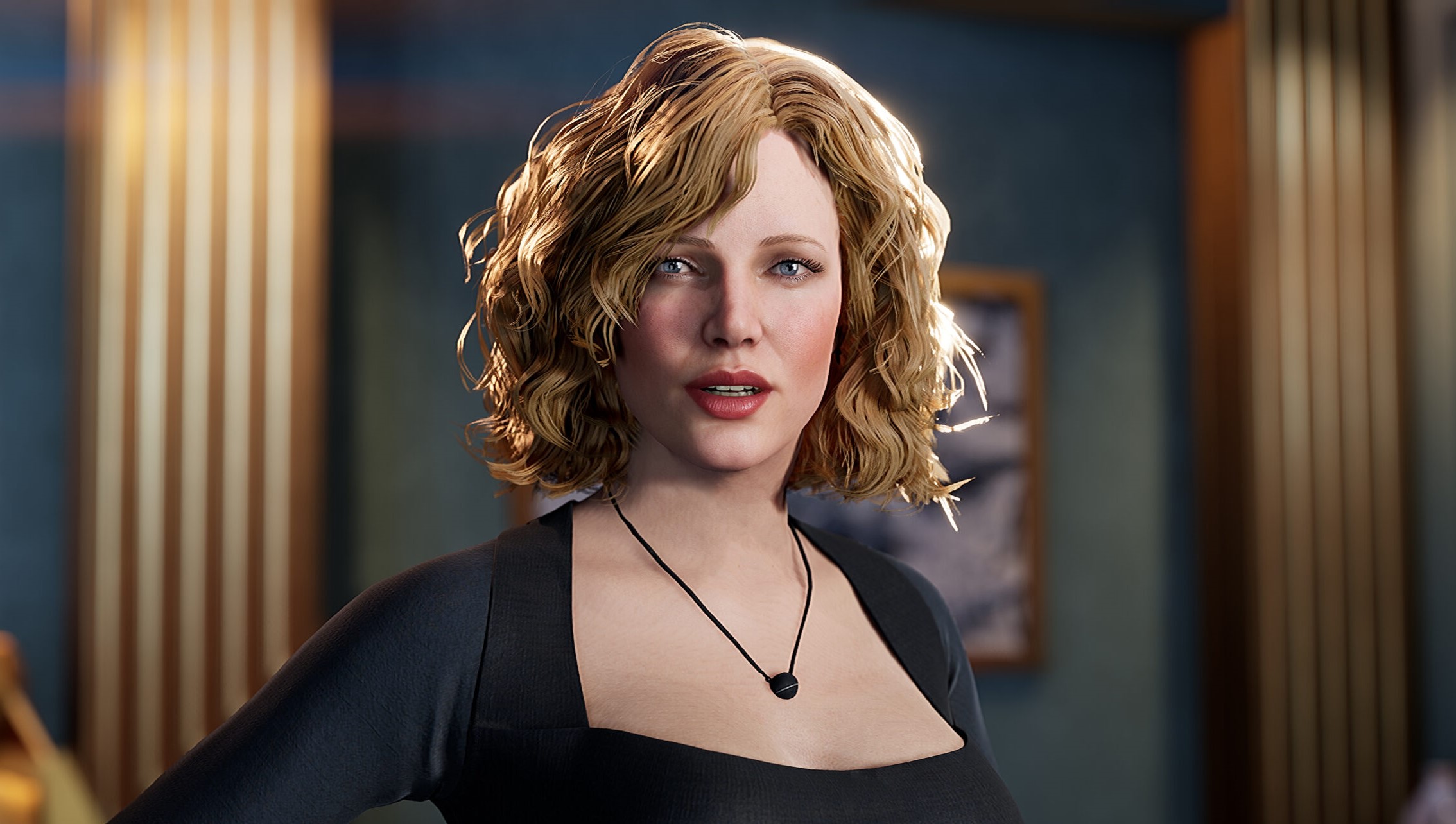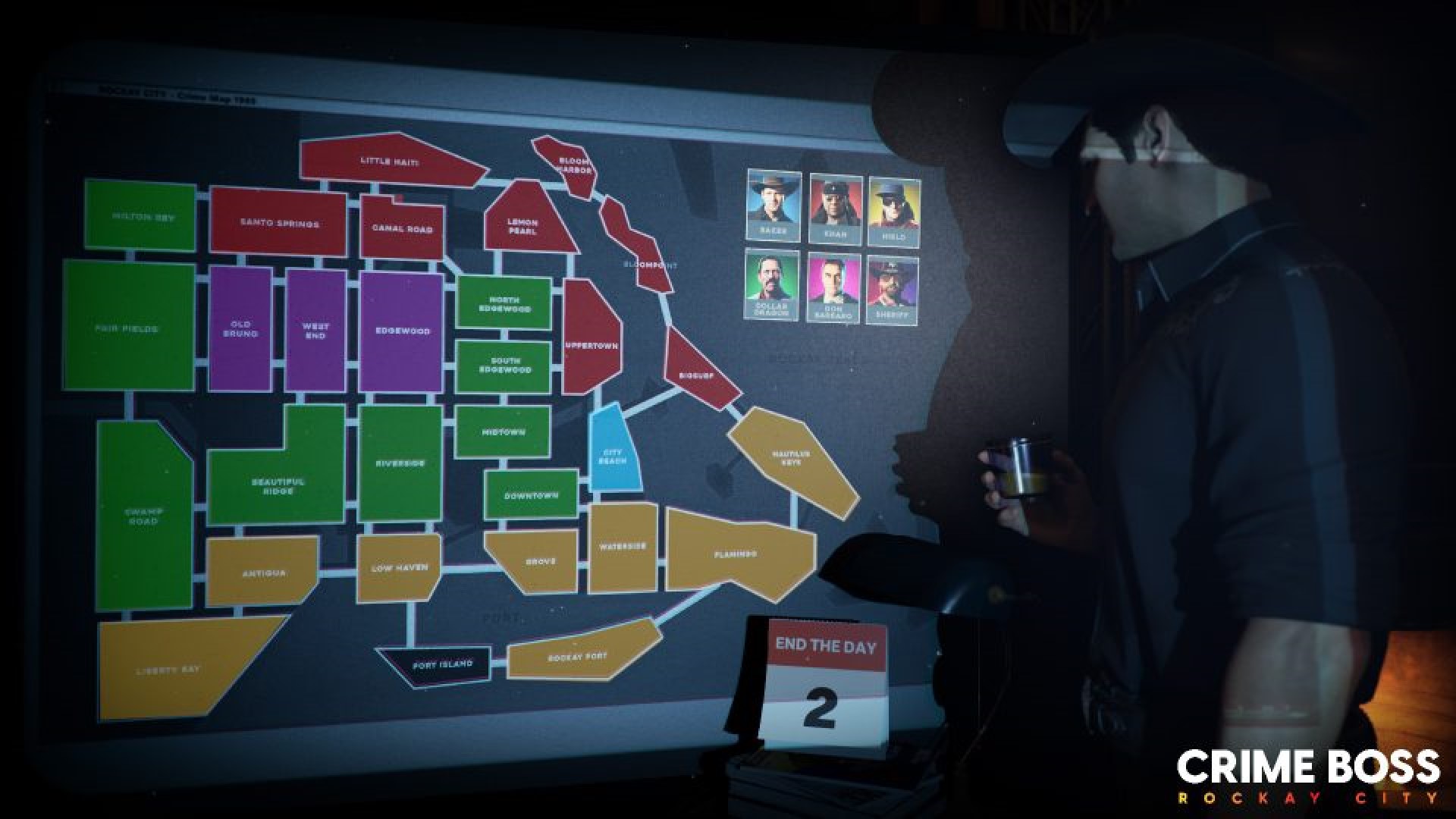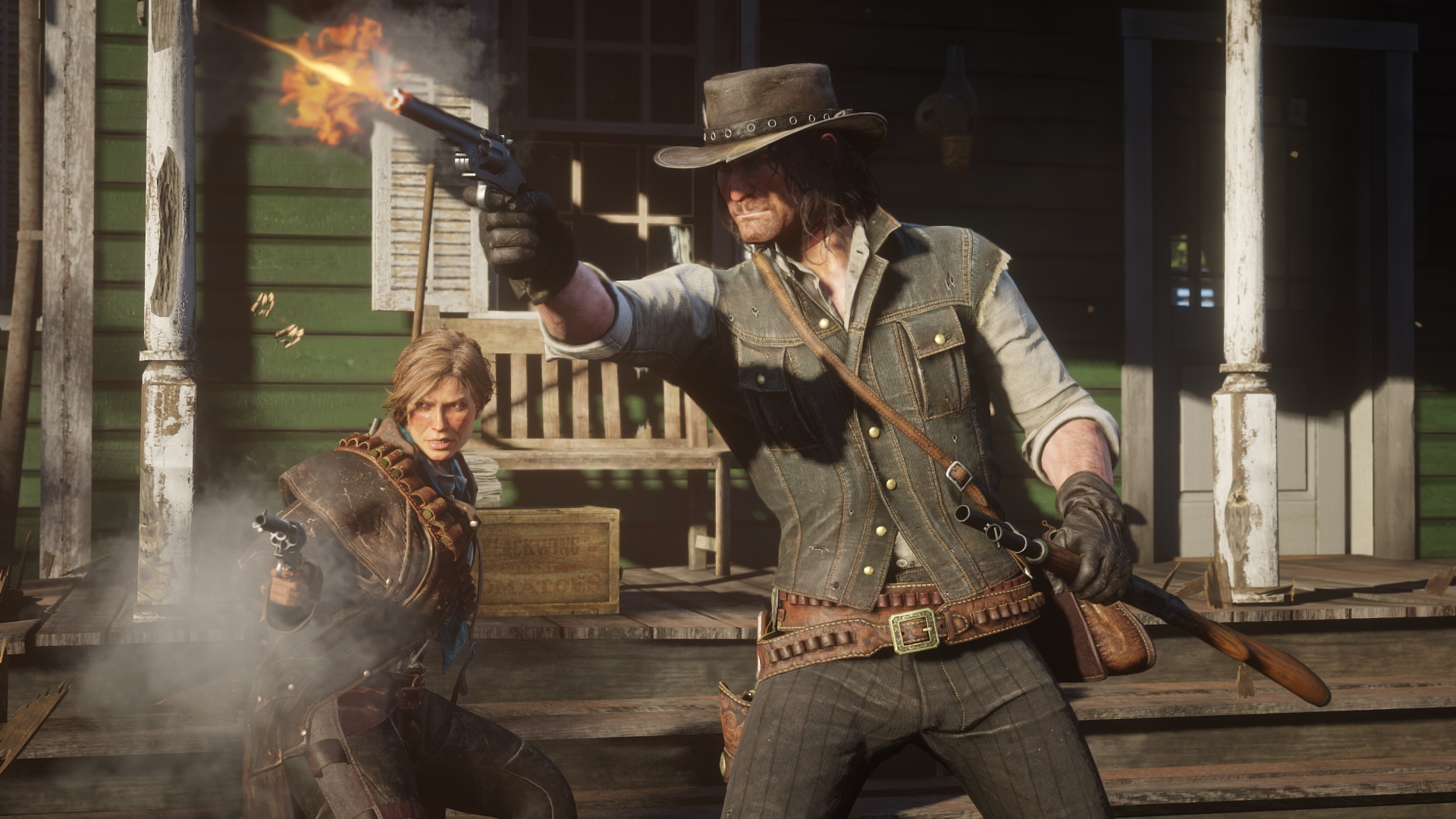GTA 5 rival Crime Boss is a sexist mess
Slime boss

I was extremely excited for Crime Boss: Rockay City.
At a hands-on preview last month, I’d been able to experience the game’s co-op mode with a handful of other journalists. I had a blast negotiating the tightly designed heist scenarios and I had high hopes for the game’s roguelike, permadeath-driven single-player campaign.
After last year’s disappointment with the Saints Row reboot, I was finally ready for another crime simulator to worm its way into my heart. Unfortunately, several hours into Crime Boss’ single-player, I realized that Ingame Studios’ roguelike FPS would not be the answer to my prayers.
Though the game has faithfully recreated the culture of the 90s in its fictionalized Rockay City, it has also accurately recreated the skeezy and uncomfortable culture of the time, creating a disquieting and unnerving atmosphere that left a rotten aftertaste.
Early on, we’re introduced to Helio, a rival gang leader played by Vanilla Ice. In this scene, one of Helio’s cronies is reporting to him as the two of them sit in a recording studio. A woman sits behind them. Whenever she deigns to speak, one of the pair tell her to “shut up, bitch.” This happens a lot. Their casual and callous dismissal of this poor woman is played for laughs. It isn’t used as an opportunity to portray Helio as some kind of unpalatable villain or to place the misogyny of the culture in a wider context. It is simply allowed to stand, uninterrogated. As far as the game is concerned, this woman’s perspective is irrelevant.
It is telling that the only woman in the game’s central cast is presented to pander to the male gaze
I continued my playthrough, hoping that this scene was an aberration or that it would have some sort of clever, unforeseen pay off later. However, the more I spend time with the title, the more my confidence ebbs. I am eventually introduced to Casey, played by Kim Bassinger.
Though she is portrayed as a competent woman who uses her sexuality to achieve her goals, I find the way she is presented to be more than a little gross. The way Travis Baker, our protagonist played by Michael Madsen, leers at her and calls her “babydoll” makes me uncomfortable. Though Casey isn't objectified 100% of the time, it is telling that the only woman in the game’s central cast is presented to pander to the male gaze.
Get daily insight, inspiration and deals in your inbox
Sign up for breaking news, reviews, opinion, top tech deals, and more.
Minority report

Despite having seen a couple of playable female recruits for your gang during the co-op preview last month, several hours into the main story, I had yet to see a single woman available to play. As with the game’s central cast, it would appear that women are an afterthought in Crime Boss.
Much of the game’s dialogue, too, seems wrenched from a more misogynistic and intolerant time. When Baker reunites with his old friend Touchdown, played by Michael Rooker, both reminisce about their past and discuss the former “stealing” the latter’s partner in the sort of dismissive, objectifying tone one would expect from a cartoonish caricature of toxic masculinity.

However, Touchdown and Baker aren’t treated as caricatures, rather, they are seen as central points in Crime Boss’s universe: both pillars of ambition and self-determination. The characters are presented as people to be respected, rather than vilified, and therein lies the problem.
The game’s problematic elements aren’t just limited to misogyny. During the opening Turf War mission, Touchdown uses archaic, homophobic expressions to describe the rival gang. I never thought I’d hear the phrase “candy-ass” in a video game made in 2023, but here we are.
Period drama

Though challenging, it is eminently possible to create a piece of art set within a certain time period without blindly regurgitating that period’s cultural values. Red Dead Redemption 2 is set during the aftermath of the U.S. Civil War, in the context of overwhelming racial injustice, as well as the deep-rooted misogyny of the period.
Red Dead Redemption 2 is far from perfect when it comes to representation. However, the game affords us glimpses into the struggles of those who found themselves on the receiving end of socio-political oppression during the days of the ‘Wild West’ in the form of Lenny and Sadie Adler. Through certain characters’ treatments of Lenny, we see firsthand some of the horrors and tribulations of the African American experience in Nineteenth-Century America. So, too, with Sadie Adler, do we see a woman who, having been the victim of male violence, is now resolved to seize her own sense of agency by mastering gunplay, horse-riding and eventually becoming a bounty hunter.
Crime Boss appears crass and best and hurtful at worst
Crime Boss seems lacking in these perspectives. In the context of more nuanced and sensitive treatments of marginalized people from the likes of Red Dead Redemption 2, Crime Boss appears crass and best and hurtful at worst. Though the game is advertised as a schlocky crime-em-up, it’s no excuse to treat certain groups of people like crap.
Ingame Studios could just as easily have formulated an attempt at a rogue-like, strategic crime boss simulator without the misogynistic and otherwise unsavory elements found throughout this game. In 2023, it is simply unnecessary. Ingame could have followed in Red Dead’s footsteps and at least tried some more varied perspectives on its world through the eyes of characters from marginalized groups, or it could simply have avoided the discussion entirely by presenting an idealized version of the 1990s.
Crime Boss could have done everything it set out to do without the misogyny and homophobic slurs. The fact that Ingame Studios either didn’t notice or didn’t care is a grave disappointment.

An editor and freelance journalist, Cat Bussell has been writing about video games for more than four years and, frankly, she’s developed a taste for it. As seen on TechRadar, Technopedia, The Gamer, Wargamer, and SUPERJUMP, Cat’s reviews, features, and guides are lovingly curated for your reading pleasure.
A Cambridge graduate, recovering bartender, and Cloud Strife enjoyer, Cat’s foremost mission is to bring you the best coverage she can, whether that’s through helpful guides, even-handed reviews, or thought-provoking features. She’s interviewed indie darlings, triple-A greats, and legendary voice actors, all to help you get closer to the action. When she’s not writing, Cat can be found sticking her neck into a fresh RPG or running yet another Dungeons & Dragons game.